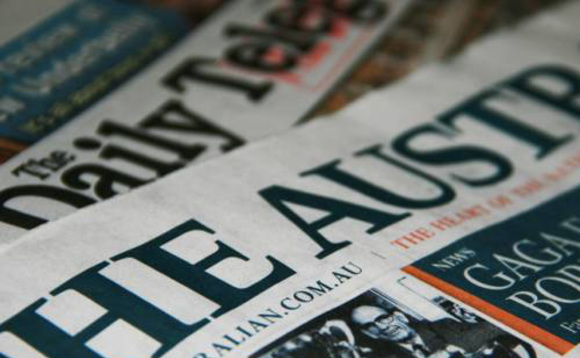
Australia's old media: Where did it all go wrong?

Traditional media in Australia has been colonized by buyout houses since 2006, but a number of these assets are now in distress. Can private equity use this situation to its advantage?
Ten years ago, media consultant Paul Budde was advising Fairfax Media Group. Free newspaper websites were popping up all over the internet at the time, and Budde was perplexed as to why so much content was being given away for nothing. "Why on earth don't you link your websites to your subscribers?" he asked the company.
Fairfax's hundreds of thousands of subscribers should be given free access to the website as part of their package, Budde believed, and the rest of the news should be limited to mere teasers.
Only this week, a full decade later, has Fairfax announced its plan to erect pay walls around the websites of its two main metropolitan newspapers, The Sydney Morning Herald and The Age. It appears this could be too little, too late, though, as the company's shares have slumped to such an extent over the intervening years that its market capitalization now stands at A$1.4 billion ($1.4 billion), down from A$7 billion five years ago. This makes it the cheapest media company in the world, according to Bloomberg - and a prime target for a private equity takeover.
"If The Australian [the biggest-selling national daily] wasn't the flagship of [Rupert] Murdoch because he started his empire with that in the 1960s, I don't think it would survive anymore," adds Budde, who runs media consultancy Budde.com.
Fairfax, which commands a 30% share of the Australian newspaper market, is not alone in its fortunes (or lack thereof). Seven West Media, which is still 12.6%-owned by KKR, is struggling under a heavy debt burden and was last week urged by a Citi analyst to raise fresh capital due to the potential risk of a covenant breach should the market deteriorate.
And the troubles aren't confined to print media either, for Nine Entertainment Group, one of the nation's most powerful TV networks, is widely perceived as the most embarrassing deal ever realized by its majority owner, CVC Capital Partners.
CVC bought Nine for A$5.3 billion in cash through several transactions between 2006 and 2008, but has seen the value of the asset drop significantly since then. The company has A$2.7 billion in senior debt on its books, and Oaktree Capital and Apollo Global Management, who hold A$1 billion between them, are pushing for greater control of the company through a debt-to-equity swap.
The challenges facing local media companies are three-fold. Firstly, though advertising spend is actually increasing, the growth in online advertising - Australia became Asia Pacific's third-largest internet advertising market last year with revenues of $2.5 billion - has come at the expense of more traditional media. Newspapers and free-to-air broadcasting channels are finding it difficult to keep up.
"Many media companies went into the digital space using an ad model that was very reflective of their traditional model, which is display advertising. Display ads are sold on a cost per 1,000 page views basis, whereas the big innovation that the pure digital companies like Google and Apple came in on was the click model," explains Megan Brownlow, executive director at PricewaterhouseCoopers and editor of the firm's Australian Entertainment and Media Outlook. "That is a much more risk-averse model, so it's much more successful and is growing more steadily than display ads."
As a result, $1.4 billion - or 54% - of Australia's online advertising spend now sits with Google rather than traditional media brands.
Something for nothing
A second factor was a global mistake. Instead of putting their content behind pay walls as soon as they launched websites online, virtually all of the world's newspaper companies initially provided their content for free. The wisdom at the time was that publishing was an advertising-supported business model and therefore papers should give away their content to build audience. Only now are the big players changing their stance: The Australian, owned by News Ltd, which controls 70% of the market, became the country's first mainstream newspaper site to use a subscription model late last year.
A third explanation for the declining profits in this segment is the unwillingness of Australian media companies to rethink their business models when first making the push online. Instead of streamlining their offerings, they kept publishing platforms relatively separate and therefore all of the high fixed costs that sat in traditional media - such as printing and design costs - stayed on the books. PwC's Brownlow believes this makes some of these companies, and print assets in particular, an ideal proposition for private equity firms looking for turnaround investments.
But multiple industry participants argue that the long-term structural decline in traditional newspapers signifies a bleak future for these assets. "So if you're private equity, if it's fundamentally structural and there's no long-term future, then you've got to consider very carefully what your exit options are for the business," a source tells AVCJ.
Free-to-air television assets might inspire more confidence among PE acquirers, though, because Australia's anti-siphoning laws prevent pay-TV broadcasters - such as Foxtel or Telstra - from buying monopoly rights to televise core sporting and cultural events before their free-to-air television have had a chance to bid on them. "We've got structural dynamics in our sector here which mean that you could take the view that the volatility in free-to-air revenues and advertising is cyclical not structural, whereas in papers, it's structural," says the source.
Exit options
Regardless of the specific nature of the asset, when it comes to offloading these companies - Nine, Seven West Media or New Zealand's Mediaworks, in which Ironbridge Capital owns part of the debt - timing is crucial. CVC is no doubt all too aware of this, having rejected various exit options over the years, including an IPO last year that could have brought in as much as A$5 billion ($4.9 billion).
Is it still possible to sell these assets for a profit, though, by diversifying into other areas? Industry participants believe it is. Australian brands command the loyalty of a wealthy domestic consumer base. What media firms need to do is to work out how to exploit those brands by getting revenues directly from consumers rather than relying on advertising revenues.
One opportunity could lie in live entertainment. "Live entertainment is booming in Australia, and we're seeing regular increases in ticket prices across all types of events," says PwC's Brownlow. "If you take your brands that have long relationships with consumers, and you allow your consumer to get closer to your brand through a live event - whether that's a stage show or a conference or an exhibition - then that's really smart."
Methods such as this, of cross-pollinating customer relationships across different platforms, could even represent opportunities for the likes of CVC, which has repeatedly declined to entertain proposals from Nine's creditors. In an ideal world, the PE firm would structure a deal that doesn't constitute a crushing loss, perhaps working alongside a partner that has synergies with Nine, and which sees value in the firm that other players don't.
Brownlow puts it thus: "The nature of media historically is that fortunes wax and wane and reinvention is possible, but it does require focus and courage."
Latest News
Asian GPs slow implementation of ESG policies - survey
Asia-based private equity firms are assigning more dedicated resources to environment, social, and governance (ESG) programmes, but policy changes have slowed in the past 12 months, in part due to concerns raised internally and by LPs, according to a...
Singapore fintech start-up LXA gets $10m seed round
New Enterprise Associates (NEA) has led a USD 10m seed round for Singapore’s LXA, a financial technology start-up launched by a former Asia senior executive at The Blackstone Group.
India's InCred announces $60m round, claims unicorn status
Indian non-bank lender InCred Financial Services said it has received INR 5bn (USD 60m) at a valuation of at least USD 1bn from unnamed investors including “a global private equity fund.”
Insight leads $50m round for Australia's Roller
Insight Partners has led a USD 50m round for Australia’s Roller, a venue management software provider specializing in family fun parks.





